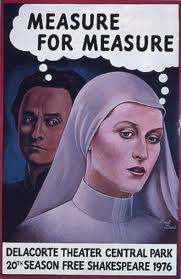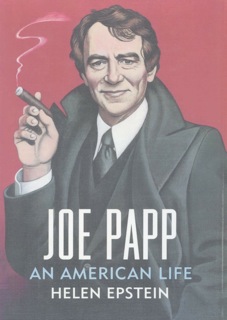Fuse Interview: Helen Epstein Interviews Herself — Joe Papp Biography Goes Electronic
Author and Arts Fuse Contributor Helen Epstein explains why she decided to take her 1994 biography Joe Papp: An American Life and convert it into an eBook—given what may be the precarious future for the traditional book, she “wanted to save it for posterity.”
AF: Joe Papp died in 1991. Why publish a 15-year-old biography Joe Papp: An American Life online now in 2011?
Helen Epstein: Because, as Peter Walsh discusses in an recent Arts Fuse posting on the challenges digitization poses to the preservation of knowledge, I wanted to save it for posterity. Also, I wanted to make this book available to new readers now. Ordering hard copies online is expensive if you live outside the U.S., and I wanted to make it available around the world—particularly the photographs and posters, which actually look better online. In other eBooks, I wrote new intros and updated bibliographies. In this one, I added more photos and posters by my favorite theater poster artist, Paul Davis.
AF: Why did you write a biography of Joe Papp to begin with?
HE: I loved his story. An amazing American story, Jewish story, New York story, theater story. Lots of cultural history and politics as well as theater. It’s an inspiring book. Joe Papp was a prodigiously creative producer, a community leader and cultural activist—not particularly motivated by money. Not many people around like him these days.
AF: How would you sum up his contribution to American culture?
HE: First, Free Shakespeare in Central Park, one of New York City’s most popular and enduring cultural institutions. He wanted theater to be as free and easy to access as the public library. He fought power broker Robert Moses to that end and won.
Then New York’s Public Theater, where the musicals Hair and A Chorus Line originated and where Papp championed new American playwrights like David Rabe. He supported dozens of contemporary playwrights and nurtured hundreds of young actors, directors, and designers—people like Sam Waterston, Meryl Streep, Mandy Patinkin, Kevin Kline. He pioneered multi-racial casting and using non-traditional actors and even pop stars like Linda Ronstadt in certain roles. He insisted that theater was a governmental responsibility before the National Endowment for the Arts existed. He pioneered the work of minority playwrights. He was an artistic as well as a political force, and he was unafraid to speak his mind in public.
AF: What do you hope readers get out of the book?
HE: The same thing I got out of writing it: an education and some inspiration. Readers, especially artists and writers, tell me that they’ve underlined dozens of quotes from Joe to re-read when they feel down.
“Try to find your satisfaction in the work itself,” he would advise. “The work you do may not please everyone but you created something that did not exist before.” Or “The critic has created nothing. He or she would have no job without you. That basic fact can give you the stamina to withstand any criticism you receive.”
=====================================================
Helen Epstein is the author of several books about performers and cultural life.


